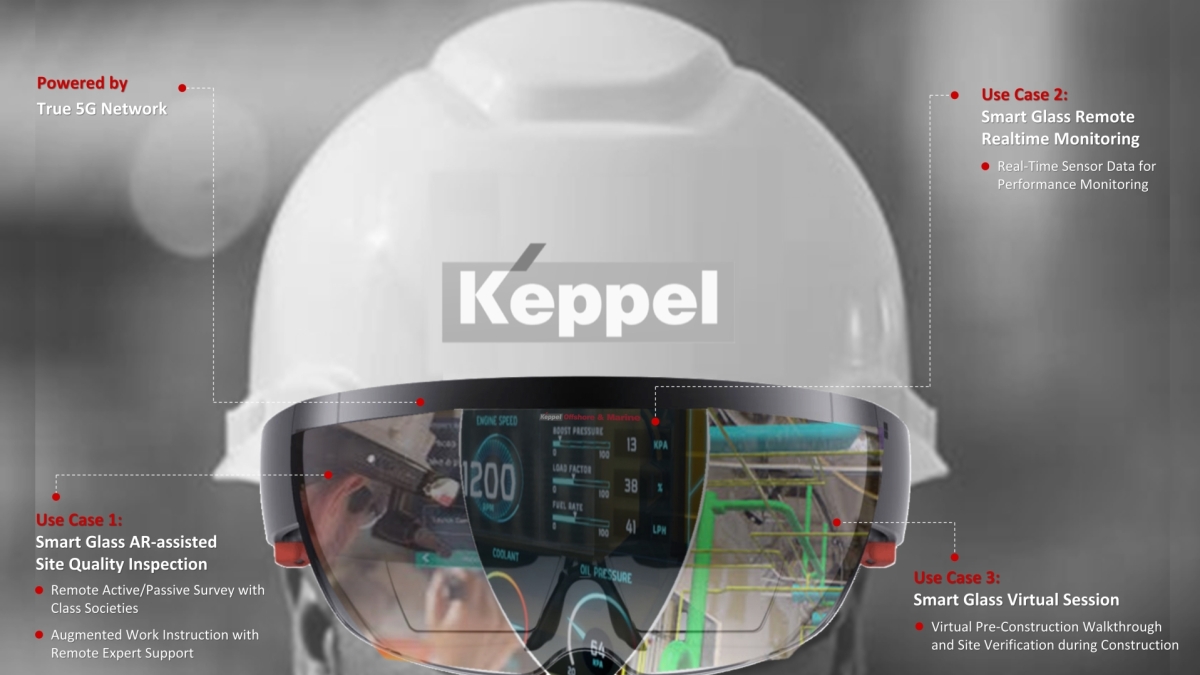 Photo from Keppel Group.
Photo from Keppel Group.
Keppel O&M uses maritime smart glasses solution in Singapore yard
This will improve the efficiency of the company’s remote operations.
Keppel Offshore & Marine Ltd partnered with M1 Limited to implement a 5G augmented and virtual reality (AR/VR) smart glasses solution at its yard in Singapore, the first in Southeast Asia’s maritime industry, to improve efficiency of its remote operations.
In a joint statement, the companies said the smart glasses can be deployed in different phases of a project’s construction and optimise the use of resources in shipyard settings.
The device, which uses software that can perform real-time analyses and provide data to the wearer, also allows the wearer to communicate with a receiver or control room. The glasses also have a micro projector which can project a digital overlay of text and images within the wearer’s field of vision, they said.
READ MORE: Keppel O&M units bag $75m worth of floating production contracts
“During the Covid-19 pandemic when safe management measures limited physical inspections and site surveys, we were the first to officially conduct remote inspections for a newbuild vessel with a classification society using Smart Glasses,” Keppel O&M CEO Chris Ong said.
“Today, we are further expanding its use to not only improve the efficiency of delivering projects and enhancing yard operations but also widening our capabilities to provide digital solutions for our customers’ assets. This is part of Keppel O&M’s Yard of the Future initiative, which harnesses digitalisation to transform our products, services, and operations,” he added.
The project has also received a grant from the Infocomm Media Development Authority’s (IMDA) Innovation Programme, they said.
Keppel O&M, in partnership with IMDA, M1, and technology experts plans to develop and commercialise 5G-enabled solutions for the maritime sector. It added that the smart glasses and their enhanced features are being test-bedded at Keppel O&M in the areas of site inspection, digital virtualisation remote monitoring, and remote virtual walkthrough.
The companies added that for the area of site inspection, smart glasses can reduce the manhours required for on-site quality inspection by as much as 50% as it digitalises the process of inspection and asset maintenance, allowing personnel to vier work instructions that can be controlled through voice-commands through display headset.
Smart glasses can also improve field engineers’ efficiency by 40% in the area of digital twin virtualisation remote monitoring as they can capture and stream live data to their main office to receive real-time remote guidance. Sensor data can also display key information such as real-time critical performance and conditions during operations within the engineer’s field of vision, they said.
























 Advertise
Advertise






